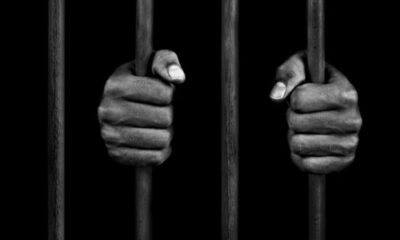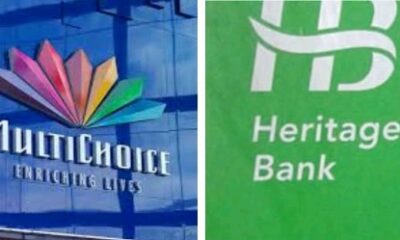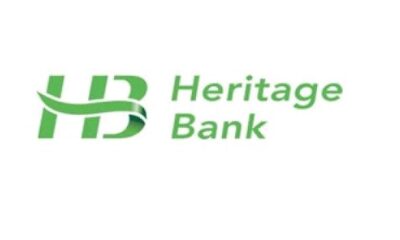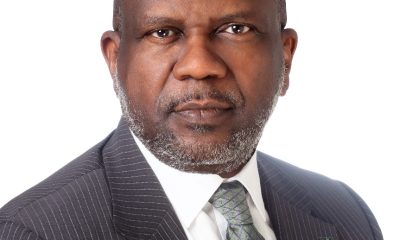Building businesses that stand the test of time requires a blend of innovation, unwavering focus, and passion. This was the key takeaway from the latest edition of the United Bank for Africa (UBA) Business Series, hosted on Thursday,
With the theme: “Profit with Purpose, Business Continuity,” the event which was held at the Tony Elumelu Amphitheatre, UBA House, Marina, Lagos, brought together top industry leaders and entrepreneurs who shared actionable insights and strategies for ensuring business resilience and sustainability in today’s dynamic economic environment.
Founder, Terra Kulture, Bolanle Austen-Peters, Chief Executive of Asadtek Group Limited, Ghana; Dr. James Asare-Adjei; Award winning TV Personality & Multi Media Entrepreneur, Frank Edoho, Celebrated multimedia personality, Toke Makinwa and founder of Nigeria’s pioneering indigenous premium coffee brand, Happy Coffee, Princess Adeyinka Tekena, were on ground to share their business journey and give insights on how businesses can stand the test of time and thrive in a competitive environment.
Bolanle Austen-Peters who is also a Prominent Lawyer, Award Winning Film Director, and Producer, was the keynote speaker at the event and she spoke on the need for small and medium scale businesses to define their purpose, build a workable framework and have a team that shares in your vision.
On how she has run a business successfully for over 20 years, she said, “I can never overemphasise the role that purpose plays in your business. There is the need for business owners to set clear goals and achievable targets. From Day one, I started with having an organisational structure like what we have in banks, complete with legal structure, a board of Directors, administrative Officers, and all.
Continuing she said, “The truth is that if you do not have a framework for your business, you may just be another business from the street. Putting together a structure shows that you are in for serious business, and people will treat your business as such,” she explained.
James Asare-Adjei from Ghana, who also shared that key essentials like being innovative and having integrity said that MSMEs need to identify areas that they can excel at and work towards building it. “As business owners, you need to take advantage of the market available to you, and ensure that you add value at every point.
For Frank Edoho, passion remains an essential ingredient that drives business growth. “Passion is very important, as business owners, you should stick to your guns and learn from what others are doing and add it to your experience to make your business better,” he explained.
“One of the things I did to grow my brand was that I was very focused,” said Toke Makinwa, who recalled her humble beginnings as a banker and later a broadcaster. “I kept the right attitude and surrounded myself with people who are team builders. These are winning strategies anytime,” she noted.
Princess Adeyinka Tekena, who is a beneficiary of the Tony Elumelu Foundation (TEF) Grant, said the $5,000 grant she won in 2015, helped to build her business from ground up and the business has been thriving for over 10 years now. She pointed out that tenacity, determination and financial discipline have been some of the factors that have contributed to the growth of her small business.
UBA’s Group Head, Marketing and Corporate Communications, Alero Ladipo, who commended the participants for sharing valuable insights explained that with these regular capacity building programs, UBA focuses on empowering other business owners to build sustainable businesses.
“At UBA, it is not just about Banking, we are also passionate about helping our customers to grow thriving businesses, and that is why we do this on a regular basis,” she noted.
The UBA Business Series is a regular seminar/workshop organised by the bank as one of its capacity-building initiatives, where leading business leaders and professionals share well-researched insights on relevant topics and best practices for running successful businesses, especially in difficult business challenges.
United Bank for Africa is one of the largest employers in the financial sector on the African continent, with 25,000 employees group wide and serving over 45 million customers globally. Operating in twenty African countries and the United Kingdom, the United States of America, France and the United Arab Emirates, UBA provides retail, commercial and institutional banking services, leading financial inclusion and implementing cutting edge technology.



 BIG STORY4 days ago
BIG STORY4 days ago
 BIG STORY5 days ago
BIG STORY5 days ago
 BIG STORY5 days ago
BIG STORY5 days ago
 BIG STORY3 days ago
BIG STORY3 days ago
 BIG STORY4 days ago
BIG STORY4 days ago
 BIG STORY3 days ago
BIG STORY3 days ago
 BIG STORY1 day ago
BIG STORY1 day ago
 BIG STORY3 days ago
BIG STORY3 days ago


























